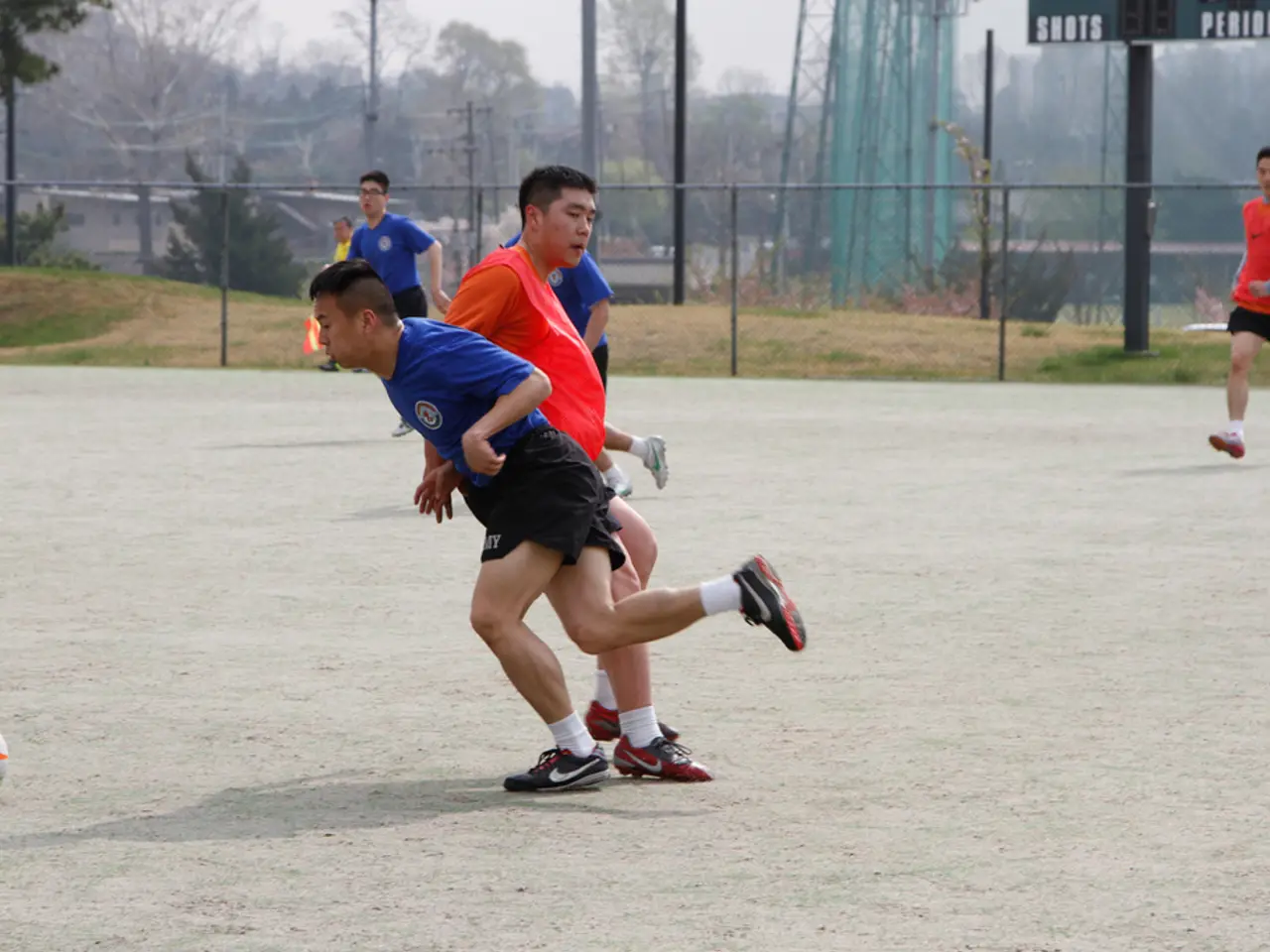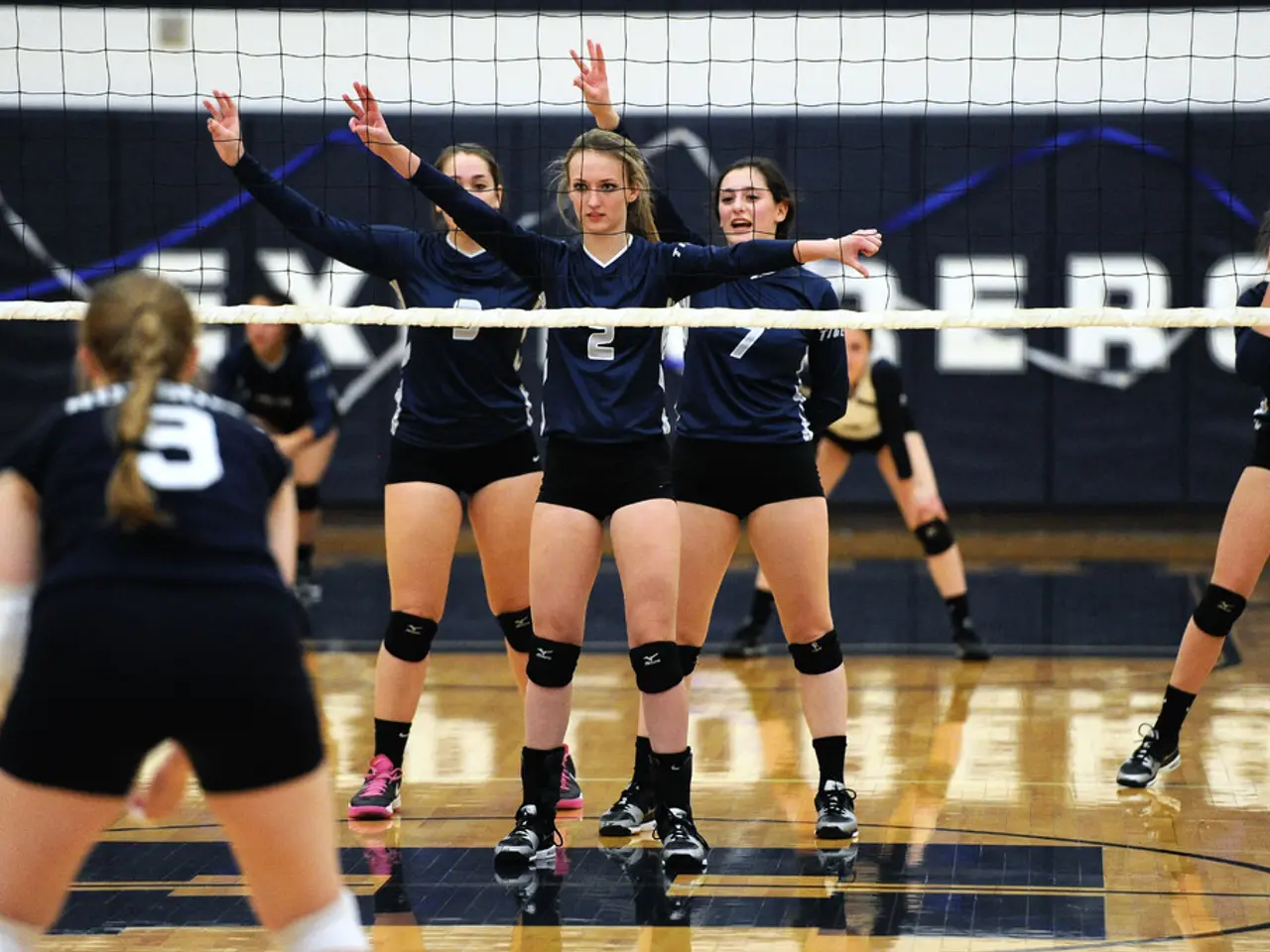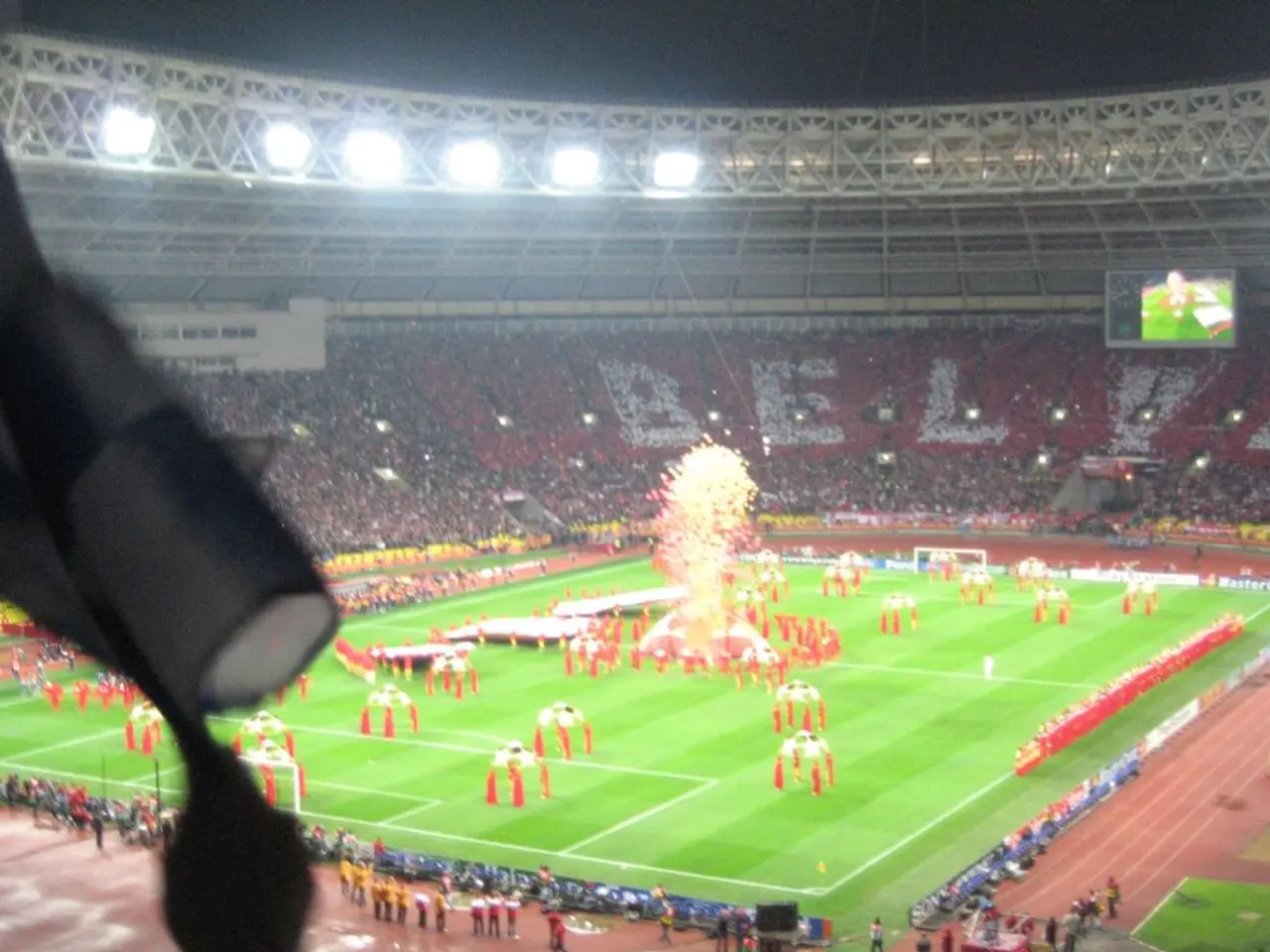Soccer Pros' Mental Game Regulation
In a groundbreaking study published in the Proceedings of the National Academy of Sciences USA, researchers from Aarhus University and the University of Oxford have unearthed a significant connection between cognitive skills and the success of professional soccer players. The study, led by Leonardo Bonetti, sheds light on the critical role of cognitive abilities in supporting continuous perceptual monitoring, rapid decision-making, and accurate motor execution during gameplay.
The research involves an international collaboration and provides a more comprehensive analysis of cognitive skills in professional soccer players, including top athletes not previously included in similar studies. The study compared over 200 professional soccer players from Brazil and Sweden to a control group of Brazilian nonathletes with similar educational backgrounds.
One of the key findings of the study is the superior cognitive flexibility and ability to anticipate and strategize several moves ahead in a dynamic environment displayed by professional soccer players. Players with higher scores on the design fluency test, a reliable indicator of intelligence on the soccer field, exhibited enhanced strategic thinking and analytical skills.
The study also utilizes artificial intelligence to identify patterns in cognitive and personality traits that distinguish elite athletes from nonathletes with impressive accuracy. Predrag Petrovic, a clinical neuroscience expert and co-senior author of the study, emphasizes the significance of these findings in understanding the cognitive underpinnings of elite sports performance.
However, Jaap Oosterlaan, a professor of pediatric neurosciences, questions the direct relationship between cognitive abilities and athletic performance. He raises concerns about the potential influence of physical training on athletes' cognitive functions. Oosterlaan challenges the notion of innate cognitive superiority in elite players, suggesting that the relationship between cognitive skills and athletic success may be more complex than previously thought.
Petrovic, on the other hand, predicts that the integration of cognitive assessments in professional soccer could revolutionize player recruitment, team strategies, and individual coaching based on cognitive profiles. He believes that cognitive abilities may prove to be the defining factor in shaping the future of soccer.
The pursuit of greatness in soccer, according to Petrovic, demands not only intelligence and strategy but also unwavering motivation and determination. The study concludes that true excellence requires a balance of mental acuity and physical prowess. The research underscores the multifaceted nature of athletic performance and the complex interplay between mind and body in achieving sporting excellence.
Improvements in cognitive performance related to processing speed and attention (measured by the Trail Making Test A, TMT-A) were observed following soccer-specific gameplay, highlighting the sport-specific cognitive demands of soccer. However, tasks requiring higher executive functions like cognitive flexibility (measured by TMT-B) did not show immediate improvement after acute exposure, suggesting these complex cognitive skills may need longer or different training approaches to develop fully.
In sum, the study emphasizes processing speed, attention, perceptual monitoring, and quick decision-making as essential cognitive skills contributing to soccer success. The findings support the integration of cognitive training alongside physical practice to enhance these capabilities in professional players.
[1] Bonetti, L., et al. (2021). Cognitive control and superior intelligence in professional soccer players. Proceedings of the National Academy of Sciences USA, 118(45), e2110504118.
[2] Petrovic, P., et al. (2021). The role of cognitive skills in soccer performance: A review. Frontiers in Psychology, 12, 641921.
- The integration of cognitive assessments in sports education for soccer, such as football or soccer, could potentially revolutionize player recruitment, team strategies, and individual coaching, based on cognitive profiles, as proposed by clinical neuroscience expert Predrag Petrovic.
- The study suggests that the complex cognitive skills of cognitive flexibility (the ability to switch between different mental sets or rules) may need longer or different training approaches to develop fully, besides physical training, according to the research findings.
- While the research highlights the significant role of cognitive abilities in supporting continuous perceptual monitoring, rapid decision-making, and accurate motor execution during gameplay, some experts, such as Jaap Oosterlaan, question the direct relationship between cognitive abilities and athletic performance, indicating a potentially more complex relationship.








